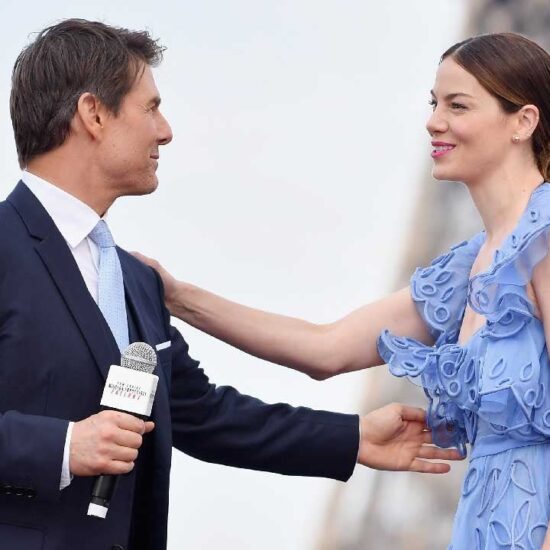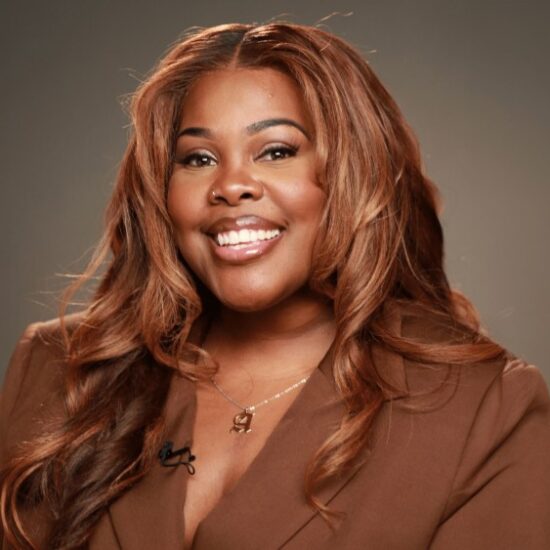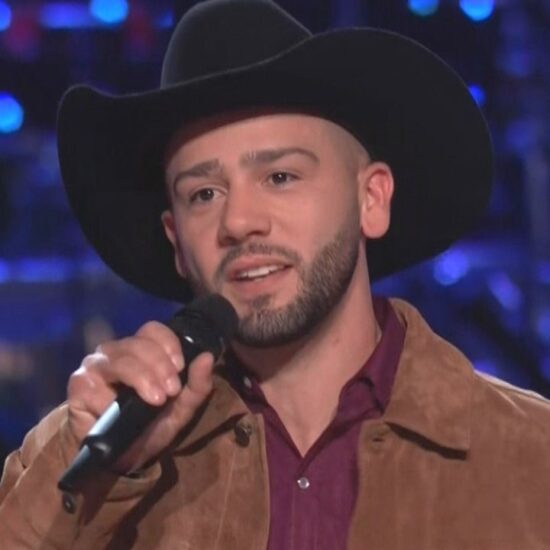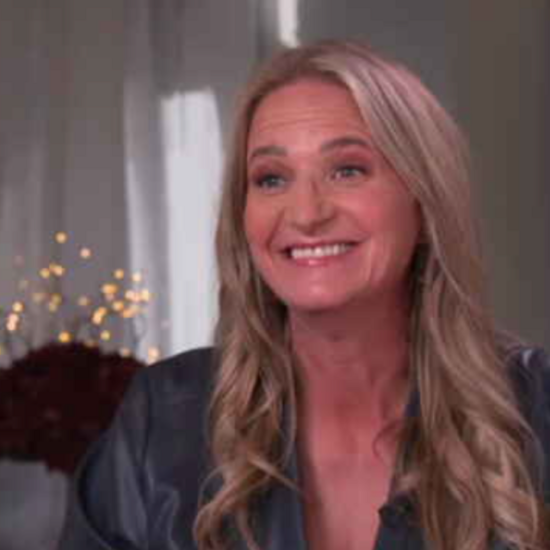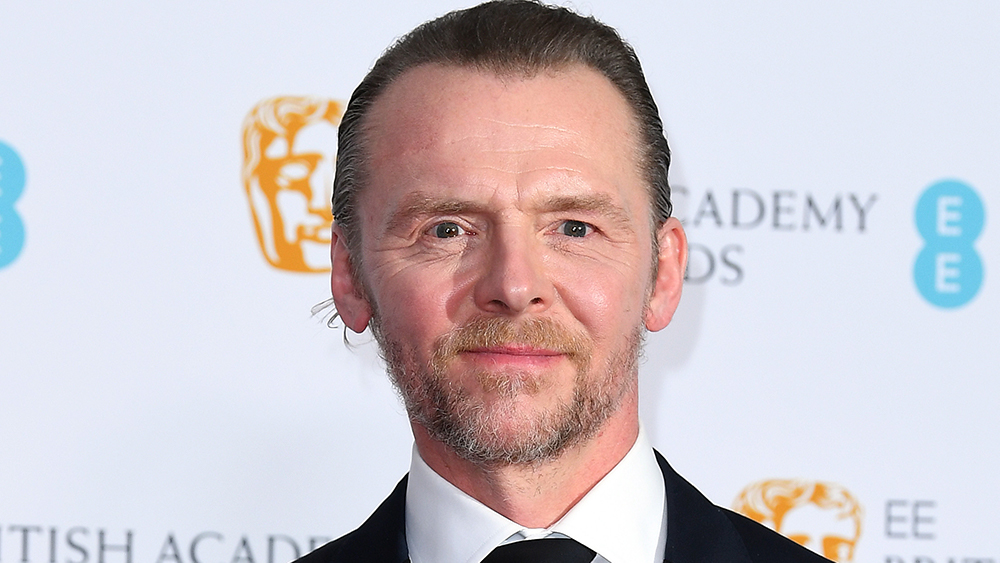
Since “Mission: Impossible — Ghost Protocol” in 2011, Simon Pegg has been part of the core ensemble of the “Mission: Impossible” franchise, playing hacker and sometime field agent Benji Dunn opposite its stalwart star Tom Cruise as Ethan Hunt. Pegg was never going to be the actor risking life and limb on screen — “it’s Benji’s job to be the one that actually says, ‘what the fuck are we doing here?’,” he observes. But over four installments of the indefatigable series, his character has shifted from questioning what Ethan is doing in the moment to believing absolutely in why he’s doing it, thanks in no small part to the writing and directing of Christopher McQuarrie.
McQuarrie came onto “Ghost Protocol” as “a sort of master plumber to re-wriggle the pipes,” as Pegg characterizes it, and since became the series’ ongoing co-architect with Cruise. Their partnership reaches its peak, even if by all indications it’s far from over, with “Mission: Impossible — Dead Reckoning Part One,” half of an operatic culmination of narrative seeds planted since Cruise first played Hunt back in 1996. In a conversation with Variety, Pegg discusses what makes McQuarrie’s creativity so special, and his collaboration with Cruise et al so unique; he also talks about new details he discovered about Benji, explored the challenges of being self-referential in a franchise like this without undermining emotional stakes, and hinted at what is yet to come as he and the rest of the filmmaking team move on to “Dead Reckoning — Part Two.”
You said that you have shot at least some of these films without a script. What’s actually there for you to work from, and what’s the minimum you need to play a scene without knowing what it might connect to?
We never don’t have a script on the day of the shoot. The scene will have been written and we would’ve had time to learn it. It’s more that McQ allows the locations we go to, the characters, the actors he’s working with to help him tell the story. He’ll let the story be revealed to him by, say, looking at the streets of Rome or the canals of Venice. It’s a fly by the seat of your pants way of working because you’ve got a rough idea of what you’re doing, but the minutia doesn’t come sometimes until the last minute. But that’s part of being an actor, and I enjoy that — we have a mission impossible going alongside our “Mission: Impossible.” But it’s never not in McQ’s head. He’s not making it up as he goes along, by any means. It’s all in there, you just have to tease it out gradually.
Thinking about the screenwriting that you’ve done, Chris’ shares in common this very Swiss-watch precision to it.
When Edgar Wright and I write together, we have the Swiss watch laid out on a table and we do it like that. McQ throws it in the air and assembles it as it falls, and it’s extremely educating for me as a filmmaker because it’s the antithesis of what Edgar and I do. That’s partly because a lot of Edgar’s transitions are very precise so we need to know how each scene starts and finishes so that it can dovetail into the next one. But it certainly made me aware that sometimes you can allow the situation to help inform the narrative or the dialogue. That’s because McQ is a master problem solver. If you give him a broken script, he just rubs his hands with glee. If you give him a blank page, he’ll scratch his head. It’s just how he is — he’s an absolute master.
It seems like it shouldn’t be quite so unique for Christopher to be able to deliver these smart, muscular, inventive action movies, but it is. What is it that makes McQ’s creativity so singular?
I think in Tom, he’s just found such a perfect creative partner, someone who can facilitate that way of working, can allow him to practice this extreme method of filmmaking. I remember when we were making “Ghost Protocol” and the script on that just wasn’t very focused, and Tom brought in McQ, a sort of master plumber to re-wriggle the pipes. And it was on that that their creative romance really took off. They’re both eternal students of film and just methods of filmmaking, methods of storytelling, certain camera rigs. I remember when we shot “Rogue Nation,” we were still using film. The cameras were quite cumbersome. Now, you can put a camera on a motorbike and just send it off a cliff and go down and pick it out of the undergrowth. And they’re forever absorbing these new methods of telling the story. So I just think they found each other — in a way that Lennon and McCartney found each other, if I could really hyperbolize.
“Dead Reckoning” feels like it’s ramping up to bring full circle these ideas and themes that the series has been exploring since the very first film. Have there been callbacks or references that you particularly enjoyed being a part of?
The interesting thing about the initial phase of this story was that it was an eclectic showcase of separate directors, and then it morphed into something with greater continuity in terms of Chris and Tom’s collaboration. But Chris has always had a great understanding of the importance of the legacy, and so we have Henry Czerny back for this one, which is so cool to see Kittridge back, and Henry’s such a brilliant actor. And also, the acknowledgement of where Ethan came from, this idea that the IMF agents are kind of offered a choice, which is usually prison, death or joining the IMF. And we came up with Benji’s whole backstory, that he was a hacker in the UK who broke into a sensitive database in the US and got extradited to be tried criminally and then was offered the choice. And so they’re striving to move forward, but also the embracing of the history of it, I think really kind of singles this story out, I think, in franchise cinema.
Does Chris give you a sense of the road he’s mapping, or do you even need that at this point when you learn the details of, say, Benji’s origin story with the IMF?
McQ’s method of filmmaking is like in Wallace and Gromit’s “The Wrong Trousers” when Gromit is on the top of the train and he’s laying the track in front of the train as it’s moving. I think McQ loves to have the story reveal itself to him, and those beautiful little parallels and callbacks aren’t necessarily preordained — they just kind of present themselves. McQ’s really keen to evolve the story in a very organic way and never to cram anything in. If it feels right, we’ll do it. If it feels like it’s just fan service or it’s just some kind of tenuous link, which doesn’t quite ring true, then it won’t find its way in.
On the other hand, the movie pokes very gentle fun at the idea that the IMF team has gone rogue more than it simply just followed a mission. Have there been other tropes you felt it probably was time to actually admit to as opposed to just sweeping past that choice?
I’m so glad they made the IMF joke in this because the International Monetary Fund has become more of a presence in the news, and it felt like it had to be addressed. But something like the mask gag, which is probably the most absurd thing in all “Mission: Impossible,” the idea that you could literally just immediately look like someone else, I love the fact that we utterly commit to that device in such a way that it rings true. I think if we ever went, wait a minute, how could you look so much like [that person]? It would spoil it. We are not a self-reflexive series. There’s a little bit of that occasionally when it’s required, but I think sometimes being arch reflects a lack of confidence in your own story. If you don’t have the confidence in the absurdity of your story, no one else is going to. And certainly with the mask gag, you’ve just got to commit.
One of the things that you do in this film is ride in a self-driving car. Why would Benji do that if it could be manipulated by The Entity?
That’s why he puts his seatbelt on. We had that thought, and we even spoke about the idea of The Entity hacking the car whilst Benji was in it. But I think he has to just do a Hail Mary and hope The Entity isn’t listening. I mean, fortunately, they’re using kind of analog comms, so with a bit of luck The Entity won’t be able to infiltrate the car. But I think it’s that moment of Benji thinking, you know what? I’m just going to pop on my belt, and that was our a way of saying, yes, we know.
How important are those plot redundancies? Is there a certain threshold where telling a story that’s exciting is more important than every single screw fitting into every little round hole?
Tom and McQ are incredibly meticulous with that kind of stuff. Obviously at times, just the sheer size of the story, the amount of characters, there are probably little holes that people can find, but we’ve always got a reason like that to explain stuff. But it is important to not just rely on people’s goodwill. I think you do have to try and cover every base as best you can, otherwise it’s just lazy. I get annoyed when I watch movies and things happen that just wouldn’t happen for whatever reason. And not necessarily great big fantasy films where you’re dealing with fantastic ideas, I don’t like it when characters do things they wouldn’t do just to facilitate a certain plot point. And I think McQ is really good at making sure that doesn’t happen with this.
After returning to Benji so many times, what are you still learning about the character?
What I love about McQ’s writing is that he’s always very true to the characters. Some people often say, “don’t you want to go and do that crazy stunt?” And it’s like, well, maybe, but would Benji do that kind of thing? He’s not Ethan. It’s Benji’s job to be the one that actually says, “What the fuck are we doing here?” Whereas Ethan’s got to be so focused, he can’t afford to take that pause. But I love the scene in this movie when Benji’s defusing the bomb and it’s starting to kind of grill him about his personal life. It’s both a heartwarming and sinister moment because it’s The Entity kind of drilling into Benji, but at the same time, you understand just how much Benji cares about who’s around him. That character stuff is the secret weapon, I think, of these films. People often make a lot of the stunts, obviously, because Tom’s doing incredibly daring stuff, but what Tom and McQ talk about the most is character, and that’s what they obsess about the most, that’s what they spend the most time working on, is making sure that the people involved in these moments of daring are people that you give a shit about. Because if you don’t, then those stunts will just be hollow.
Part One feels very complete even though obviously Part Two is coming. How much have you filmed of Part Two and what has the flow been from one film to the next?
We’re not shooting in a pandemic, which means it’s not going to take quite as long as the last one did, which is a relief. I can tell you that we’ve already shot stuff which makes part one seem tame. To sit with an audience and watch Part One and know what’s coming, I feel this supreme sense of dramatic irony. It’s going to be extraordinary and surprising and also have the same degree of heart and character and attention to detail that Tom and McQ always bring.








